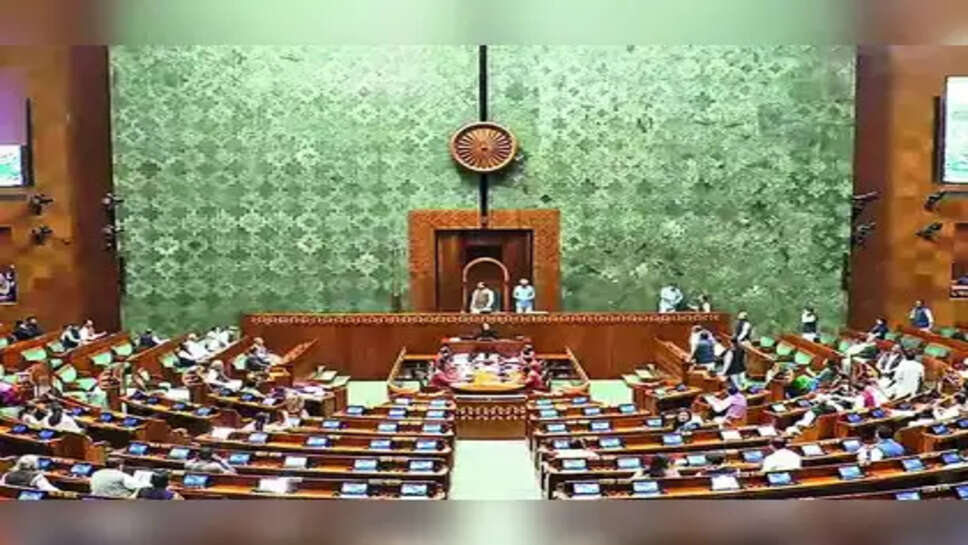Parliament Paralysis: Sports Bill in Limbo Over SIR Standoff

In the middle of a monsoon session riddled with procedural deadlocks and high-decibel arguments, the Indian government is hoping to push through a much-anticipated Sports Bill. However, the Opposition’s continued insistence on a structured debate over the Special Investigation Report (SIR) concerning alleged surveillance and misuse of state machinery has left the legislative agenda paralyzed, threatening to derail yet another session of Parliament.
This deadlock, familiar to seasoned watchers of Indian politics, is raising fundamental questions — not only about the feasibility of passing crucial reforms like the Sports Bill, but also about the ability of India’s democratic institutions to function amid deepening political polarization.
What Is the Sports Bill and Why Is It Important?
The proposed National Sports Development and Regulation Bill (commonly referred to as the Sports Bill) is a long-awaited piece of legislation aimed at overhauling India’s sports ecosystem. Key objectives of the bill include:
-
Establishing a National Sports Tribunal for dispute resolution
-
Mandating transparency and term limits in sports bodies like BCCI, IOA, and federations
-
Ensuring compliance with global anti-doping standards
-
Providing structured funding and development pathways for athletes
-
Creating an oversight mechanism to prevent corruption in sports administration
Supporters of the bill argue that it is urgently needed to clean up governance in Indian sports, encourage professionalism, and support grassroots development. With the Paris 2024 Olympics behind and Los Angeles 2028 on the horizon, the government sees this moment as a strategic opportunity to institutionalize reforms.
The Opposition’s Objection: The SIR Standoff
Despite bipartisan consensus on the broad objectives of the Sports Bill, the Opposition has refused to let the bill be tabled or debated unless the government agrees to a full discussion on the Special Investigation Report (SIR). The SIR reportedly details allegations involving surveillance, misuse of intelligence resources, and political targeting — with some opposition leaders claiming it implicates top government functionaries.
Opposition leaders across parties — including the Congress, DMK, TMC, AAP, and Left — have demanded that the SIR be either tabled in Parliament or brought under the purview of a Joint Parliamentary Committee (JPC).
“Sports reforms are welcome, but democracy must come first. We can’t let business-as-usual resume while the integrity of institutions is under question,” said a senior Congress MP during a media briefing.
Government’s Response: ‘Disruption Over Debate’
The government, on its part, has expressed frustration over what it calls “obstructionist tactics.” Parliamentary Affairs Minister Pralhad Joshi recently said, “We are ready to debate everything, but the House must function. The Sports Bill is not controversial, and it deserves passage in national interest.”
Top ministers have privately indicated that the government may be willing to have a short-duration discussion on the SIR in a separate session, but not under the current format demanded by the Opposition — which includes a naming of individuals, potential censure motions, and floor-time guarantees.
This stand-off has created a procedural bottleneck in both Houses of Parliament, with frequent adjournments, walkouts, and shouting matches dominating proceedings.
Stalemate’s Broader Impact: Governance on Hold
As the Parliament session moves toward its final leg, the logjam threatens to derail not just the Sports Bill, but also:
-
Amendments to the Digital India Act
-
Key fiscal provisions under the Finance Bill
-
Ratification of international trade agreements
-
Discussion over states’ demand for increased GST compensation
According to data released by PRS Legislative Research, productivity in the Lok Sabha and Rajya Sabha has fallen below 40% during the current session. With less than 10 working days remaining, chances of substantial legislative progress appear bleak unless both sides find common ground.
Sports Fraternity Reacts: ‘Politics Over Athletes’
Many voices from the sports community have expressed disappointment at the impasse.
“It’s painful to see such a progressive bill stuck in Parliament because of unrelated political disputes. Athletes are the ones who suffer,” said a retired Olympic wrestler, now associated with a national federation.
Sports federations, many of which are currently under court scrutiny or facing infighting, were hoping the new regulatory framework would offer clarity, especially around funding and leadership criteria. Several athlete-activists have called for a special session or bipartisan working group to handle sports legislation separately from political controversies.
Is There a Way Out?
Constitutionally, the government can push through the bill using its numerical strength, especially in the Lok Sabha. However, without Opposition cooperation, such a move would be criticized as undermining democratic norms. In the Rajya Sabha, where the ruling party doesn’t have a clear majority, consensus is a necessity.
Experts suggest a few off-ramps:
-
Divide the debate: Pass the Sports Bill first, and then schedule structured discussion on SIR next week
-
Create a multi-party committee to review both the bill and the SIR demands in tandem
-
President’s intervention: A symbolic but powerful appeal for cooperation from the President may help break the logjam
-
Speaker’s mediation: The Lok Sabha Speaker could call for an all-party meeting to craft a solution
What’s at Stake?
The standoff between the government and the Opposition once again underlines how critical bills can fall victim to wider political tensions. The Sports Bill represents long-overdue reforms, but its fate now hinges on a larger, unrelated political tussle.
If the impasse isn’t resolved, the government risks missing a strategic opportunity to showcase reform momentum. For the Opposition, blocking proceedings over the SIR may win short-term political points but could alienate sections of the public — especially when the legislation in question concerns national pride in sports.
As parliamentary norms erode and legislative work takes a backseat, the Indian electorate is left watching a familiar drama: shouting matches, walkouts, and missed opportunities. Whether this session ends with a landmark reform or yet another stalemate depends on whether consensus can triumph over confrontation — in what is supposed to be the temple of democracy.
.jpg)